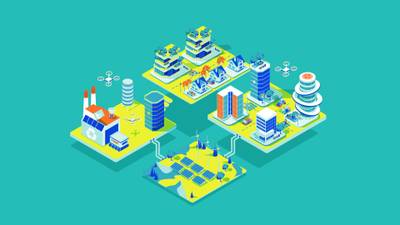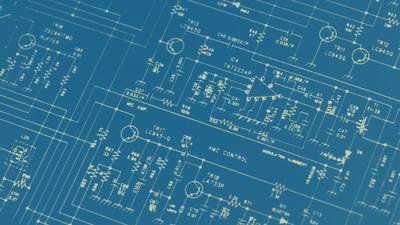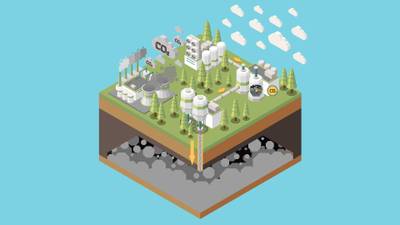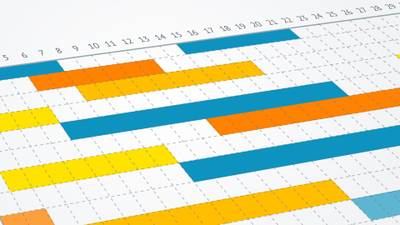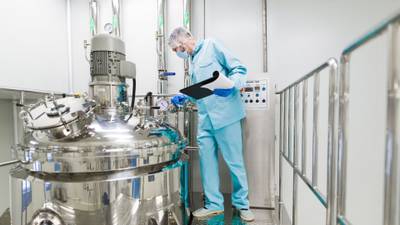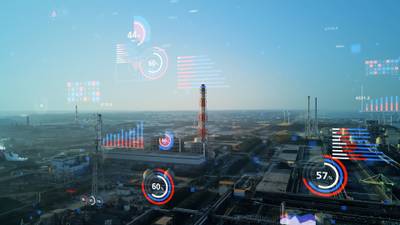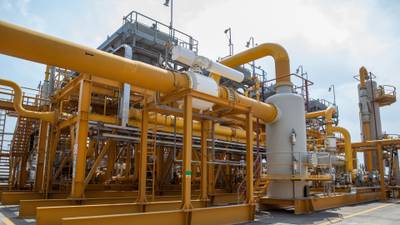Join an energy transition course you can study flexibly, 100% online.
Build the technical knowledge and skills you need to understand and promote the green energy transition.
In this Masters-level online short course, you’ll develop a detailed understanding of:
- the current energy system
- the opportunities and challenges of the energy transition
- the technologies and drivers needed to enable the energy transition
- emerging green technologies, including hydrogen, biomass, wind, and solar.
Develop a holistic understanding of the energy transition
As well as its technical aspects, you’ll also examine the energy transition’s social, economic, regulatory, and environmental enablers and impacts.
Who can join this online energy transition course?
This distance-learning course is open to graduates in any discipline.
It’s ideal learning for:
- graduates from a broad range of disciplines (STEM, law, social sciences)
- oil and gas sector workers interested in energy transition careers
- councils and public stakeholders keen to expand their energy transition projects.

Build credits towards a Masters degree
This online course is part of:
You can use the credits you earn on this short course towards this MSc qualification.
What you’ll study
In this course, you’ll study the energy transition via areas including demand, technology, and economics.
You’ll explore:
- the current energy system and the motivation for transitioning away from fossil fuels
- the major drivers behind our social and economic reliance on energy, and
- the behavioural measures and technologies needed to enable the energy transition.
You’ll learn to assess these according to diverse technical, economic and environmental criteria.
You’ll cover the following topics:
- Introduction to the energy transition
- Metrics for characterising low carbon technologies
- Energy service demands and drivers
- Energy efficiency potentials on the demand side
- System-level opportunities for efficiency and optimisation
- Challenges of integrating renewable energy technologies, including energy storage
- Renewable resources and technologies, including wind, solar, hydropower, hydrogen, biomass, and heat pumps.
By the end of this course, you’ll be able to...
-
Justify the energy transition in a broad international context.
-
Explain the need to implement integrated actions towards the energy transition.
-
Explain the fundamentals of the most relevant renewable energy sources.
-
Identify critical aspects of the different technologies applied in the energy transition.
-
Assess environmental and social impacts of renewable technologies.
-
Collect relevant data for renewable energy systems.
-
Model renewable energy systems at a basic level.
-
Calculate energy generation and consumption.
-
Communicate technical findings to both expert and non-expert audiences.
-
Interpret basic financial concepts, including the levelised cost of energy, and return on investment.
-
Report scientific data crucial for the energy transition.
-
Critically compare different renewable technologies.
Choose the University of Aberdeen for online energy transition training

Earn as you learn
We fit around full-time work, so you can build qualifications while you keep earning a salary.

You’re in expert hands
We’ve been training energy professionals for decades and delivering online learning for over 20 years.

20% alumni discount
University of Aberdeen alumni get 20% off this online course.
How you’ll study
Online learning
This distance-learning energy transition course is delivered flexibly, 100% online.
You can learn with us anywhere, no student visa required, and manage your study hours to suit you.
Your teaching
This course is taught at Masters level.
Teaching is delivered through MyAberdeen, our online Virtual Learning Environment (VLE). It holds all the materials, tools and support you’ll need in your studies. Take a look around MyAberdeen.
You can access your learning materials on computer, smartphone and laptop, 24 hours a day. You’ll find a range of resources available, including:
- live online teaching and tutorials
- reading materials
- discussion boards with your tutor and peers
- the online resources of our award-winning Sir Duncan Rice Library.
Live online teaching and tutorials
You’ll have three hours of live online teaching each week, including an online tutorial where you can ask questions and seek advice and feedback. Live sessions will be recorded, so you can access them after they’ve taken place.
Industry input
Through virtual visits and invited talks, you’ll have access to industry experts working in the energy transition and renewable energies.
This course is part of MSc Energy Transition Systems and Technologies, which features an Industrial Advisory Board. This group of representatives of companies in the renewable energy sector ensure that your learning content is current and addresses real industry needs.
This course is assessed online.
You’ll be assessed throughout your studies via:
- your coursework (worth 20% of your final course grade), and
- an online open-book exam (worth 80%).
Live online teaching and tutorials
This course features three hours of live online teaching per week, including a one-hour live online tutorial.
These sessions will be recorded, so you can access them after they’ve taken place.
Study hours
The course totals approximately 150 hours of study and assessment time. That’s around 10 – 15 hours per week.
This is an indicative guide to the time required for a typical student at this level to achieve the learning outcomes. This includes time for independent study, as well as teaching and assessments.
You can largely set your own study hours each week to cover the materials. MyAberdeen is available 24/7, so you can log in and study when it suits you.
Activities at fixed times
There will be some activities scheduled for fixed times, such as assessments with deadlines or meetings with your tutor. But otherwise, you can access and work through the course at your convenience.
Our first-class support structure will ensure that you aren’t alone in your studies. You’ll have contact with your coordinator via email, MyAberdeen and Microsoft Teams. You can use social media and discussion boards to chat with your fellow students too.
We provide a wide range of services to support you in your studies and beyond:
- Careers and Employability Service
- Disability support
- IT support
- Library support
- Student Support Service – help with finances, stress, wellbeing and non-academic issues
- Student Learning Service – study support, with advice sessions available via phone or Skype
- Aberdeen University Students’ Association (AUSA) – run by students for students
- Toolkit – clever apps and free training that can make your study life easier
Wherever you are in the world, you’ll feel part of our very special Aberdeen learning community.
Your teaching team
This course is delivered by our School of Engineering.
You’ll learn from academics who are active researchers in the energy area, with expertise in hydrogen and energy system modelling.

Dr Alf Martinez-Felipe
Alf is a Senior Lecturer in Chemical Engineering and is your course coordinator. His interests cover the design, characterisation, and testing of innovative liquid crystals, ionic liquids, and polymers that can be applied for energy conversion and storage.
Alf is a director on the board of the Aberdeen Renewable Energy Group, with over 280 members involved in the energy transition. He is also a member of the Just Transition Lab and is hydrogen champion at the Centre for Energy Transition.
View Alf’s profile
Dr Yingfang Zhou
Yingfang is a Senior Lecturer in Engineering. His interests are in multiphase flow in porous media. Yingfang performs experimental, theoretical and numerical research into many aspects of flow and transport in porous systems, including pore-scale imaging, modelling and analysis of displacement processes, and large-scale simulation using simulation tools.
View Yingfang’s profileWhere this will take you
Towards a Masters
You’ll earn 15 credits at Masters level (SCQF Level 11) with this course. You can use these credits towards our online:
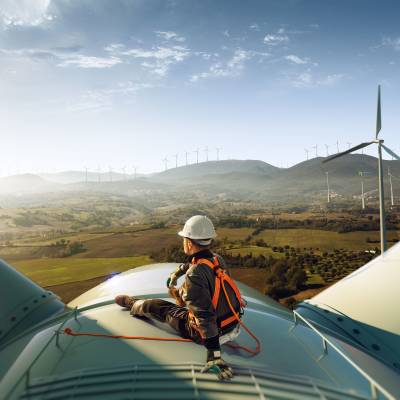
Masters in Energy Transition Systems and Technologies
Join an online MSc that’s training the next generation of systems engineers. Help our planet transition from oil and gas to net-zero, with a degree you can study online, part-time.
View MSc Energy Transition Systems and TechnologiesBuild your learning with more energy transition courses
We offer a range of online energy transition courses you can use to build your skills and qualifications.
All these short courses are designed to fit around full-time work. Most carry credits that build up into postgraduate qualifications, including Masters degrees:
Careers
You’ll complete this course with enhanced, multidisciplinary skills in the areas of renewable energies and the energy transition.
This course is designed to help you progress within or towards a career in the energy transition, in areas including:
- management
- energy consultancy
- finance
- administration
- research and development
- education.
Continuing Professional Development (CPD)
Your employer or professional institute may recognise this course for CPD hours. Talk to your employer or institute to find out more.

Free career support
Access our free careers service while you study.
- 1:1 appointments
- CV checks
- Interview prep
- Job opportunities
Entry requirements
Entry requirements
We welcome students from all over the world.
This course has no formal entry requirements. You do not need to provide proof of your qualifications.
But you do need to check the entry guidance above to understand the level of teaching delivered, to decide if this course is right for you.
If you do not have qualifications from the UK, check the equivalent teaching level for your country.
Visa requirements
You do not need a student visa to study online with us.
English language requirements
Teaching is delivered in English.
You do not have to provide proof of your English language skills to join this course. But we want to make sure that you can use English well enough to study successfully.
Recommended level of English
For this course, we recommend the following level of English language proficiency.
These are our Postgraduate Standard requirements, and these are minimum scores.
IELTS Academic, IELTS UKVI Academic, or IELTS Online (not IELTS Indicator or IELTS General Training)
- 6.5 overall
- 5.5 for listening, reading and speaking
- 6.0 for writing
TOEFL iBT or TOEFL iBT Home Edition
- 90 overall
- 17 for listening
- 18 for reading
- 20 for speaking
- 21 for writing
- TOEFL DI code is 0818
Cambridge English: B2 First, C1 Advanced, or C2 Proficiency
- 176 overall
- 162 for listening, reading and speaking
- 169 for writing
LanguageCert Academic / LanguageCert Academic SELT
- 70 overall
- 60 for listening, reading and speaking
- 65 for writing
Oxford ELLT Digital – English Language Level Test Online
- 7.0 overall
- 5.0 for listening, reading and speaking
- 6.0 for writing
PTE Academic (online test not accepted)
- 62 overall
- 59 for listening, reading, speaking and writing
Skills for English: SELT
- B2 pass with merit
Duolingo – tests taken from 1 July 2024 onward
- 120 overall
- 95 for listening, reading and speaking
- 105 for writing
University of Aberdeen English Pre-sessional Programme (PSE)
- Pass
- Valid for one year. Refresher can be offered if out of date
Pre-sessional academic English preparation programmes undertaken at other UK universities
- Pass at an equivalent of 6.5 (C1)
- B2 in all four skills
- Certification must be within one year prior to the start of your course
For full information about language requirements, see our English Language Requirements page.
You will need access to:
A computer (PC, laptop or Mac) operating on either:
- Windows 10 or later
- macOS 10.15 (Catalina) or later.
Most teaching materials are smartphone- and tablet-friendly. But we recommend a proper laptop or desktop for completing assignments comfortably.
Reliable internet access
We recommend:
- a wired connection
- a minimum download speed of 2 Mbps so you can take part fully in live sessions.
Speakers or headphones
- We recommend a headset with built-in microphone and earphones if you’re likely to study in an environment with background noise.
- A webcam is optional, but you may like to use one for some interactive sessions.
Software
We’ll give you access to Office365 applications. This means you can use online versions of Microsoft Word, Excel, and PowerPoint and install these programs on up to five personal devices.
If your course requires specialist software, we’ll provide you with access to this and a licence that lasts throughout your studies.
See our detailed IT requirements for more information.
When you study with us, you can expect a first-class support structure so that you’re never alone in your studies.
But learning online does mean you have to motivate yourself and manage your own time.
Your most important commitment will be time – the time to work through, reflect on and understand your teaching materials.
Before you start a course that involves a high degree of independent study, we recommend looking at the time you will be able to devote to your studies each week:
- Be realistic
- Create a weekly schedule as a guide
If you have any questions about studying online, get in touch with our friendly team. We’re here to help.
Fee payment
Your course fee needs to be paid in full before you start your course.
We accept payment via Visa Debit, Visa Credit and Mastercard.
Ways to save
You may be able to get help funding this course via:
- discounts – if any discounts are available for this course, they’ll appear in the section below
- employer sponsorship – we accept full and partial fee payments from sponsors.
Find out more about funding options.
Student card
All our students are entitled to a University of Aberdeen student card. This gives you access to a range of student discounts around the city and online.
Learning resources
Access to all the books and resources you need are included in your tuition fee. They’ll be made available to you online and you do not have to buy your own copies.
Printing
You may wish to set aside a small budget for printing, depending on how you like to work.
This course has no formal entry requirements. You decide if it’s suitable for you.
The course is delivered at Masters level. At this level, you’d usually have at least:
- a 2:2 UK undergraduate degree (or equivalent), or
- relevant experience that supports this level of study.






